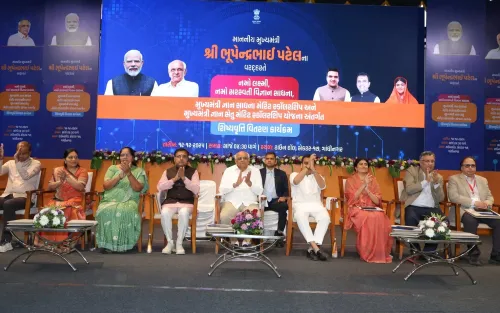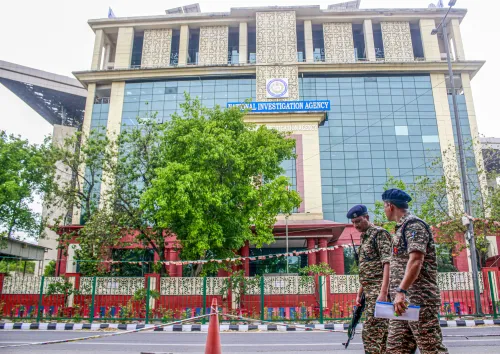Why Did Adani Airports End Its Partnership with DragonPass?

Synopsis
Key Takeaways
- Adani Airport Holdings has terminated its agreement with DragonPass.
- The decision is rooted in Turkey's support for Pakistan.
- DragonPass customers will lose lounge access at Adani airports.
- The Indian government has revoked security clearance for Celebi Airport Services.
- Ensuring national security remains a top priority for the government.
New Delhi, May 15 (NationPress) Adani Airport Holdings has decided to end its collaboration with the Turkish firm DragonPass, which previously allowed its clients access to airport lounges. This decision follows Turkey's backing of Pakistan after the Pahalgam terror incidents and India's Operation Sindoor, which was initiated to respond to the tragic deaths of 26 tourists.
“Our partnership with DragonPass, which offered lounge access, has been terminated effective immediately. Consequently, DragonPass clients will no longer have entry to lounges managed by Adani airports. This adjustment will not affect the lounge experience for our other patrons,” stated a spokesperson for Adani Airport Holdings on Thursday.
In related news, the Indian government has rescinded the security clearance for the Turkish ground-handling company Celebi Airport Services at Indian airports, amidst rising calls for a ban on Turkish enterprises due to their government's support for Pakistan.
The Ministry of Civil Aviation announced that “in exercising the power conferred upon DG, BCAS, the security clearance for Celebi Airport Services India Pvt Ltd is hereby revoked with immediate effect in the interest of National Security.”
Celebi manages approximately 70 percent of ground operations at Mumbai airport, including passenger services, load control, flight operations, cargo and postal services, as well as warehouse and bridge operations.
Minister of State for Civil Aviation and Cooperation, Murlidhar Mohol, mentioned in a post on X that numerous requests have been received from across India to prohibit Celebi NAS Airport Services India Ltd, a Turkish entity engaged in ground handling at Indian airports.
“Recognizing the gravity of the situation and the appeals to safeguard national interests, we have taken these requests into account and the Ministry of Civil Aviation has revoked the security clearance of the aforementioned company. Ensuring the safety and interests of the nation is our utmost priority,” the minister communicated.
Since its establishment in 2008, Celebi has broadened its footprint within India's aviation sector.
Reports indicate that the company is partially owned by Sumeyye Erdogan, the daughter of Tayyip Erdogan.
Sumeyye Erdogan is married to Selcuk Bayraktar, the individual responsible for manufacturing Bayraktar military drones, which have been utilized by Pakistan against India.
This implies that Turkey's support for Pakistan is not merely a matter of state policy, but also involves direct engagement from Erdogan’s family, according to various reports.










